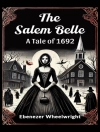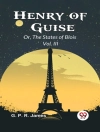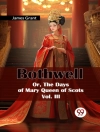In ‘The Ladies Lindores, ‘ Mrs. Oliphant intricately weaves a narrative that intertwines the complexities of societal expectations and the personal struggles of women in Victorian England. The novel is characterized by Oliphant’s nuanced prose and psychological depth, delving into the lives of its titular characters as they navigate love, societal pressures, and familial obligations in the Scottish highlands. Setting her story amidst the mores of 19th-century British society, Oliphant uses a mix of realism and romanticism, presenting an insightful portrayal of the era’s gender dynamics while exploring themes of autonomy, identity, and duty. Mrs. Oliphant, a prolific Victorian novelist, was an astute observer of her contemporaries’ societal challenges. Her own experiences as a widow struggling to support her family and her immersion in the literary world informed her writing, resulting in a compassionate and critical lens through which she examined the roles and tribulations of women. With a career spanning over several decades, Oliphant’s distinct voice echoes the sentiments of her time, capturing both the trivial and profound depths of her characters’ lives. For readers interested in the exploration of women’s roles in literature, ‘The Ladies Lindores’ offers a rich tapestry of emotional exploration and social commentary. This novel is a compelling read for anyone who appreciates intricate character development and the reflection of societal norms, making it an essential addition to the canon of Victorian literature.
Circa l’autore
Margaret Oliphant Wilson Oliphant, known as Mrs. Oliphant, was an accomplished Scottish novelist and historical writer who made a significant mark in the British literary scene of the 19th century. Born in Wallyford, near Musselburgh, Midlothian on April 4, 1828, and passing away on June 25, 1897, her prolific career included more than 120 works — encompassing novels, biographies, travel writing, and literary criticism. Mrs. Oliphant’s writing is characterized by its clear narrative style and keen observation of character, often exploring the issues facing women in Victorian society. Her novel ‘The Ladies Lindores’ is one of her significant contributions, examining the lives and challenges of aristocratic women and the societal expectations placed upon them. Through her works, Mrs. Oliphant often depicted the complexity of human relationships and the social changes of her time. Her ability to weave thought-provoking narratives earned her the respect of readers and critics alike and cemented her place among the notable writers of Victorian literature.












